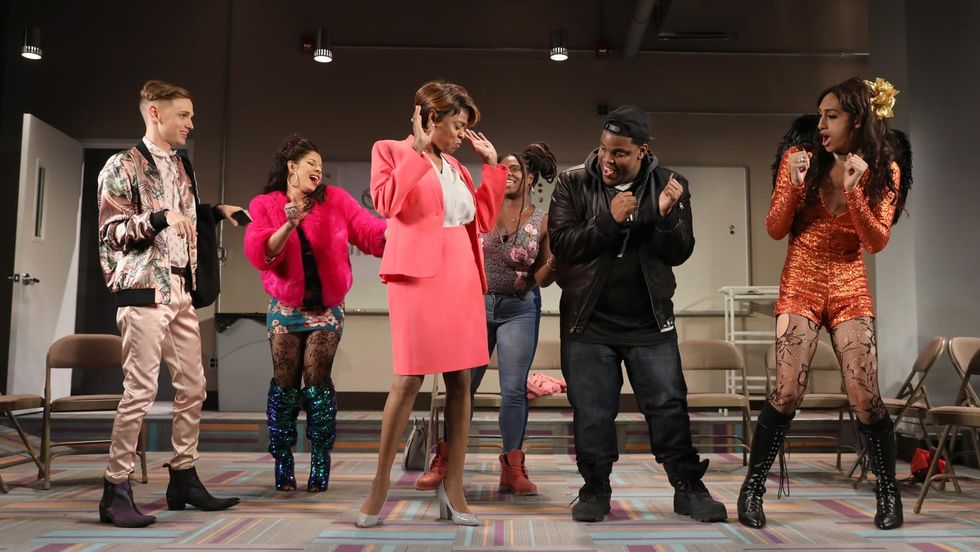It is a chill night in the final days of August on the winding streets of Greenwich Village. The Lucille Lortel Theater opens its doors to introduce the first production in the 2017 season of off-broadway's MCC Theater.
Philip Dawkins’ "CHARM" is the story of Mama Darleena Andrews and her impassioned quest to teach an etiquette class to the LGBTQ youth at the community center in Chicago’s Northside. Inspired by the true story of Miss Gloria Allen and under the direction of Will Davis, "CHARM" empowers us to write our own narrative.
A sanitary whiteboard covers the back wall, a stark backdrop against the fluorescent lights that hang from the ceiling and glow up the stage with a blinding artificiality that is never flattering. A few metal folding chairs scatter across the striped carpet as a lonely garbage can sits in the corner. It’s institutional and it’s clean and it’s hauntingly real.
What presents before us is the stark depiction of a place that is at once generic, but also familiar, dutifully reminding us of those rooms we’ve been shuffled into for driver’s ed or our morning wellness class or an AA meeting. It’s hard to believe we’ve entered the Lucille Lortel theater at all.
The stage turns black.
Mama Darleena Andrews (Sandra Caldwell) enters the stage, propelling through darkness as a ray of comedic and colorful light. With a seductive yet comforting voice that reels in the audience, we enter the world of "CHARM." Mama’s speech is at once soothing and riddled with the rules and expectations of proper behavior.
As D (Kelli Simpkins), the community center manager, enters the stage, another protocol flows out of the mouth as they organize those scattered chairs into straight and cohesive lines.
But not for long.
The kids enter, pounding the pavement, loud-mouthed and unapologetic, spitting language that cuts the tongue and slices the ears as much as it dismantles confidence and spirit. The world we saw before, in all its organized glory, is now destroyed (for the better) by vibrant color, ferocious dialect, and reckless movement. When the kids exchange proclamations of admiration and love, the room turns again, bursting into a newfound empowerment.
In a moment, the room reflects the life that has entered it. What was once blank and empty now sparkles with exquisite character. It is the reminder that we control the space we inhabit. We indicate the form we want to embody and the energy we emulate.
The room itself is a contradiction. We may conform to its bounds and become as linear as the neatly placed chairs and as harshly blinding as the fluorescent lights; or, we may choose to use the room as a transformative experience. The stark walls may shake as we speak about our aspirations, the chairs may fall as we find the music that moves us, and the lights may flicker as we discover our sense of “who." We choose to break free.
This is the tale of identity. In a world that forces one to make a choice, we understand that one’s truth is not subject to force, but a being in itself. To live is to be me and that should be enough.





 mr and mrs potato head
StableDiffusion
mr and mrs potato head
StableDiffusion










